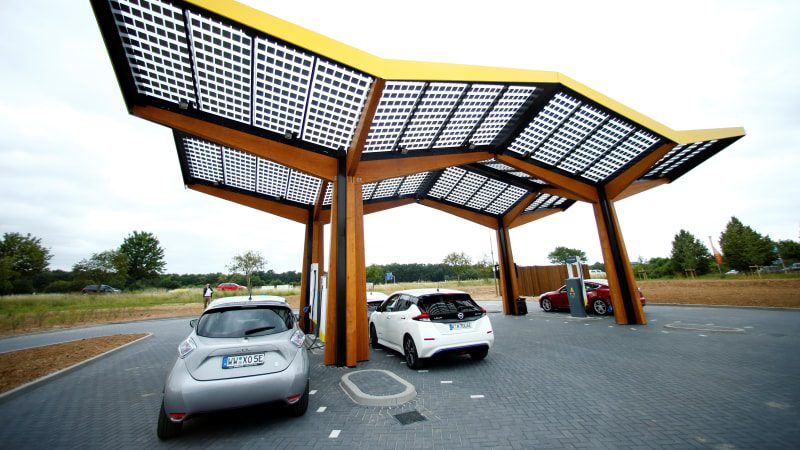Germany to spend 6.3 billion euros on push for electric car charging points

BERLIN/FRANKFURT — The German government approved a plan on Wednesday to spend 6.3 billion euros ($6.1 billion) over three years to rapidly scale up the number of charging stations for electric vehicles across the country, as part of its push towards net zero emissions.
The plan envisages a 14-fold increase in the number of charging stations, climbing to 1 million by 2030 from around 70,000 now. It would focus on building them in local municipalities which are currently undersupplied.
It also aims to have 15 million electric vehicles on German roads by 2030 from around 1.5 million now. Other measures in the government’s plan include speeding up state approvals to build charging points.
“Our goal: to accelerate the expansion of charging infrastructure, simplify the charging process and thus make it easier for people to switch,” said Federal Transport Minister Volker Wissing in a statement.
“We know that electromobility is ramping up rapidly, so we have to be quick.”
Germany is expecting exponential growth in the electric vehicle market and the government wants to make it more attractive for buyers to switch to such cars, Wissing said at a press conference after the cabinet approved the plan.
“There has to be a positive experience associated with it,” he said.
Germany is home to battery-electric vehicle makers including Volkswagen and Tesla, which has a factory on the outskirts of the capital.
The electric vehicle push comes against a backdrop of surging electricity prices, resulting from an energy crisis fueled by Russia’s invasion of Ukraine.
To address that, the German government plans to cap electricity prices, and Wissing said the energy crisis should not derail longer term climate goals.
The electric vehicle plan drew a mixed reaction from industry associations, which have long complained that the government has not kept pace with the rapid expansion of electric vehicles.
The German Association of the Automotive Industry (VDA) said it was an important step and that the speed of implementing the proposals was now key. The BDEW energy and water business association said the proposals would lead to more planning and state control, calling it expensive window-dressing.
($1 = 1.0225 euros)
(Writing by by Matthias Williams; Editing by Bernadette Baum)



